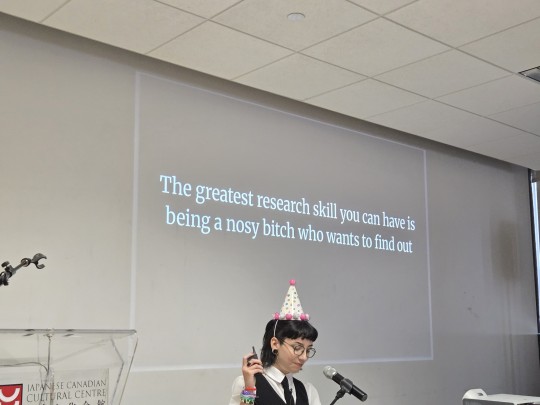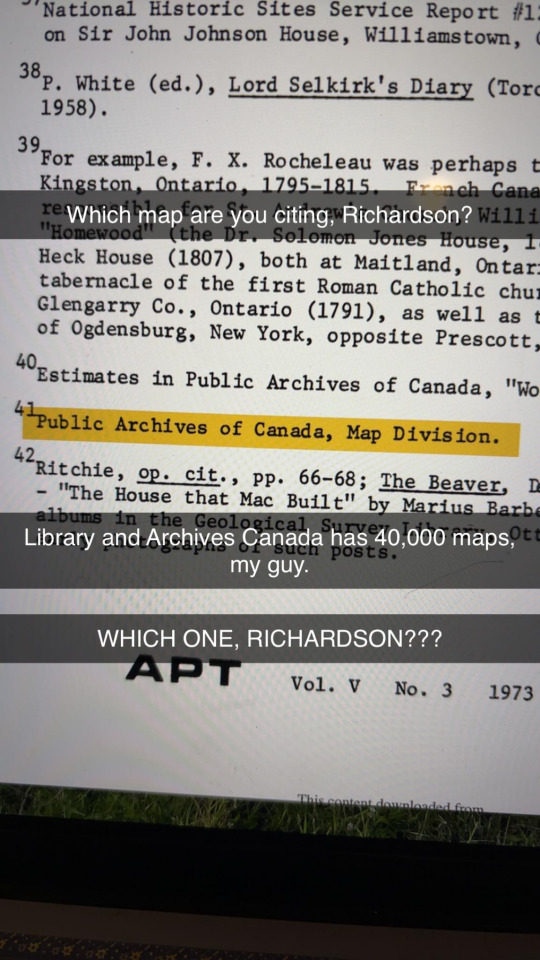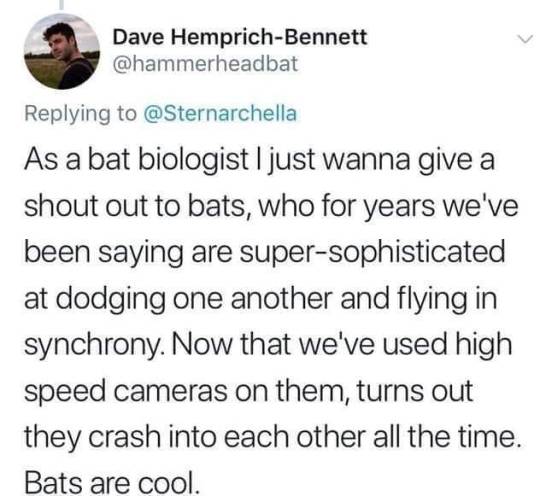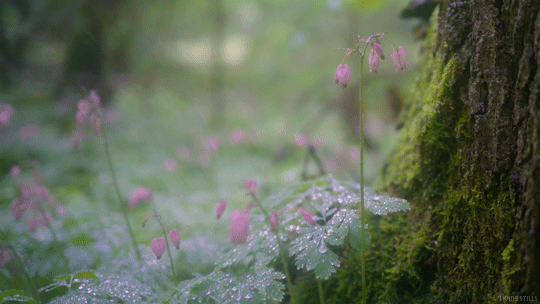#research
Explore tagged Tumblr posts
Text

Procedure
#artists on tumblr#my art#own art#illustration#art#dark laboratory#laboratory#mad scientist#evil scientist#research#dragon#Spotify
9K notes
·
View notes
Text
Be a nosy bitch who wants to find out, seek knowledge of all kinds!

The best photo I took at Dashcon 2
48K notes
·
View notes
Text
It is incredibly important to train yourself to have your first instinct be to look something up.
Don't know how to do something? Look it up.
See a piece of news mentioned on social media? Look it up.
Not sure if something is making it to the broader public consciousness, either because you don't see it much or you see people saying nobody is talking about it? Look it up.
Don't know what a word means? Look it up.
It will make you a better reader and a better writer, but it will also just make you more equipped to cope with the world.
So often, I see people talking about something as though it is the first time anyone has ever acknowledged it, when I've been reading reports about it on the news for months or years. Or I see someone totally misinterpreting an argument because they clearly don't know what a word means--or, on the other hand, making an argument that doesn't make sense because they aren't using words the right way.
Look things up! Check the news (the real news, not random people on social media)! Do your research! You (and the world) will be better for it.
23K notes
·
View notes
Text
Skip Google for Research
As Google has worked to overtake the internet, its search algorithm has not just gotten worse. It has been designed to prioritize advertisers and popular pages often times excluding pages and content that better matches your search terms
As a writer in need of information for my stories, I find this unacceptable. As a proponent of availability of information so the populace can actually educate itself, it is unforgivable.
Below is a concise list of useful research sites compiled by Edward Clark over on Facebook. I was familiar with some, but not all of these.
⁂
Google is so powerful that it "hides" other search systems from us. We just don't know the existence of most of them. Meanwhile, there are still a huge number of excellent searchers in the world who specialize in books, science, other smart information. Keep a list of sites you never heard of.
www.refseek.com - Academic Resource Search. More than a billion sources: encyclopedia, monographies, magazines.
www.worldcat.org - a search for the contents of 20 thousand worldwide libraries. Find out where lies the nearest rare book you need.
https://link.springer.com - access to more than 10 million scientific documents: books, articles, research protocols.
www.bioline.org.br is a library of scientific bioscience journals published in developing countries.
http://repec.org - volunteers from 102 countries have collected almost 4 million publications on economics and related science.
www.science.gov is an American state search engine on 2200+ scientific sites. More than 200 million articles are indexed.
www.pdfdrive.com is the largest website for free download of books in PDF format. Claiming over 225 million names.
www.base-search.net is one of the most powerful researches on academic studies texts. More than 100 million scientific documents, 70% of them are free
302K notes
·
View notes
Text
actively using these to divide my research outline about lesbian erasure, a perfect addition.










• the back of cards
sorry for not posting in a while i’ve run out of ideas for the moment
12K notes
·
View notes
Text
"According to the lore..."

(meme caption @cryptotheism)



#sam winchester#supernatural#research#spn#lore#supernatural sam winchester#knowledge is power#spn sam winchester#listen to this#spnfandom#jared padalecki#spnfamily#supernatural memes#supernatural funny#spn humor#supernaturallove#spn memes#spn gifs#supernatural gifs
58 notes
·
View notes
Note
This is a random message, but recently I've been reading a lot of manga and stories with religious themes. However, I'm gay and have religious trauma so I don't see myself returning to it. But I'm also afraid I'm making a mistake in doing so. Do you think you can point me in tue right direction book wise or christian witch creators? I'm completely new to this and don't want to learn incorrect or conspiracy theory information. Thank you 🩵😊
The best way to avoid internalizing conspiracy theories is to improve your critical thinking and research skills, and to research them from a critical or academic perspective and to learn real history and science. Avoiding "bad" fiction is neither a good nor realistic plan, given that tropes associated with conspiracy theories are found in probably the majority of science fiction and fantasy, and frequently pop up in other forms of fiction as well.
(Avoiding "bad" fiction is the puritan/reactionary's answer to social problems, and it has never fixed a single thing because it's about giving in to a gut reaction telling you to avoid confronting the problem instead of carefully analyzing it to find the actual best solution.)
Here are some resources:
Information Literacy Basics
Critical Thinking Skills: Definitions, Examples, and How to Improve Them
11 Characteristics of Pseudoscience
Six Ways To Debunk Any Conspiracy Theory
Miniminuteman
ESOTERICA
Angela's Symposium
BS-Free Witchcraft
Digital Hammurabi
Misquoting Jesus with Bart Ehrman podcast
It's Probably (not!) Aliens (this is the YouTube page for the podcast, but if you search for it you can find it on other platforms)
Behind The Bastards
Tales of Times Forgotten (you can search the blog for topical words like Atlantis, aliens, antisemitism, conspiracy theory, witch, or whatever)
Jason Colavito's blog (again, you can search for topics)
Conspirituality Podcast
Gutsick Gibbon (debunks young earth creationist claims, do not overlook this one!)
Edit: Adding these. If you're trying to educate yourself on conspiracy theory tropes, consider them required reading:
Check your conspiracy theory. Does it sound anything like this?
Check your conspiracy theory part two: double, double, boil and trouble
Check Your Conspiracy Theory Part Three: Babylonian Mysteries?? In My Religion???
653 notes
·
View notes
Text
Archaeologist problems: can't heckle a guy to give you his full citation data when he's been dead for 14 years.

6K notes
·
View notes
Text

[Image ID: The Destiel confession meme edited so that Dean answers 'They might have found the cause and cure of long COVID'. /End ID]
source link

[Image ID: A screenshot of a post by CarolAnn Barrows. It reads:
"Japanese researchers have found a possible explanation for long COVID. They discovered that small fragments of the coronavirus's genetic material can remain deep behind the nose, in an area called the epipharynx, for at least six months after infection. These viral remnants irritate the immune system and may cause fatigue, coughing, dizziness, and "brain fog." The researchers used an old Japanese treatment called epipharyngeal abrasive therapy (EAT), where the area is swabbed once a week with a cotton swab dipped in 1% zinc chloride solution. After three months, the patients showed:
- significantly fewer viral remnants
- lower levels of inflammatory substances
- noticeably reduced symptoms
The treatment appears to both remove the lingering virus and calm the inflammation. A larger clinical trial is now underway in Japan to confirm the results. This discovery could lead to more targeted treatments that address the root cause of long COVID symptoms instead of merely managing them."
/End ID]
3K notes
·
View notes
Text

Saw this on FB and was amused.
18K notes
·
View notes
Note
If you’re doing biological or medical research:
Start with a narrative review (dated in the last 5 years). This will give you an overview of the field (or read a handful and get overviews of the field). These are more likely to be shaped by an authors work or political position in the field.
Systematic reviews, meta analyses and scoping reviews will tell you what a consensus (if these is one) opinion is. These are excellent for medical journals, okay for genetics, and not so good for experimental biology, ecology, marker gene or meta-genomic sequencing.
Every article has a “funding” and a conflict of interest section, usually at the end. Pay attention to this! This is usually described with initials.
Pubmed.gov gives you an indexing of biomedical research including a cross indexing system called “MeSH”. You can follow MeSH terms across the site to find information within a theme. Think of them like tags on AO3 or tumblr, but sans social commentary
Pubmed will also sometimes provide open source access to the articles (click the link. Paywalls articles can be accessed via (1) asking an academic friend (2) talking to an academic librarian (go to your university! Say hi! Ask for help), (3) SciHub, (4) the authors. Every article has a “corresponding” author who is supposed to answer questions.
Preprints are articles that are finished but not peer reviewed. Be wary of preprints that don’t have testable claims. (Software preprints with code you can run? Go for it. Controversial preprint about vaccine injury with a poorly described source population? Wait for peer review
Peer review isn’t perfect and sometimes whether or not stuff gets through depends on the peer reviewer and their sense of what they like. I edited an article recently where 3 reviewers gave wildly different opinions on the work (accept, reject, fix) becuse they were looking for different things.
Watch out for predatory journals, predatory publishers, and short acceptance times. I wouldn’t start with anything from MDPI or Frontiers becuse they’re force through journals. You get one round of review and then it’s supposed to be fine to accept
It’s worth reiterating, but science is very human. People have biases, specific tool kits, specific hypotheses, and there are trends.
Do you have any tips on doing accurate research for people without access to formal education
Sure! This can't be one size fits all for every field, but I can give some starting points for history.
If you're reading a book, here's what to consider:
1. Are there footnotes or endnotes? In academia this is our way of being transparent with each other about where you got information. If a book doesn't have them, they're more interested in telling a good story than being accountable to their peers. That's a red flag.
2. Don't trust claims that seem very specific but don't have a source. Broad claims can be the author's analysis. But specific things "so and so said this" "there was a rumor that (x)" should be coming from somewhere and it is the author's job to tell you where.
3. Look out for choppy quoting. Even if someone has a source, they may not be using it well. If someone is paraphrasing a lot and only uses bits and pieces of the text while also using a lot of ellipses, you will want to try to find the whole text to make sure it's being quoted fairly.
4. Look at the publication date. Knowledge changes with time and old books tend to be outdated. You don't have to stick to the academic rule of thumb of "25 years is the threshold for new scholarship" but do be aware that if something is over 50 years old, many many people have likely revisited and revised what it's saying. Not that new books can't also be bad and incorrect, but they tend to be working with better tools generally.
5. Look up the author. I cannot stress this one enough. The author's background and political convictions can matter a lot to how they interpret things. For example, one of the biographies people tend to pick up about my dissertation topic is from the late 1920s by a man who later applied to join the NSDAP. That fact really can't be separated from his interpretations no matter how hard people try.
6. Stop reading if someone is making a lot of moral or personal judgements on a historical figure. I'm talking about the "Elizabeth I was a frigid hag and men found her ugly"-esque takes, not things like calling historical atrocities morally bad. Does it feel like bitchy gossip? That sort of thing is unprofessional, uninformative, and means someone has an axe to grind. Spite can be motivation for research, but axe grinding shouldn't show up clearly in published work.
These are things to keep in mind to make sure you're getting better information. Others are free to add on for their field or if there's something I forgot.
One very important thing to add: professors and academics like people emailing them about their research. You can do that! You can ask for copies of pay walled articles. You just have to go through the mortifying ordeal of expressing interest in an email.
#research#scientific literature#research literacy#I have a whole ass PhD#and multiple published academic articles
4K notes
·
View notes
Text

#gradblr#phdblr#phd#student#studyblr#research#dark academia#light academia#booklr#studyinspo#study space#humanities#stem#studyblog#book blog#twitter
4K notes
·
View notes
Text
Science side of Tumblr PLEASE share your tips/advice/hacks for academic conferences!
Im attending my first academic conference in a couple weeks and I’d appreciate anything you’d like to share with a lil baby bio undergrad like me
#science side of tumblr#science student#science stuff#science#research scientist#biology#research#conference#psychology#cognition#cognitive science#wildlife biology#zoology#ethology#ecology#evolution#medicine#med school
2K notes
·
View notes
Text



You guys wanna see a science Lego set? Well, here's Lego DNA!
With a scientifically accurate DNA model, and a historically accurate lab + 5 scientists!
Aims: to promote science to kids and honor Rosalind Franklin.
Less than 600 votes needed to reach 10K when it will be considered as a real official Lego set to be sold worldwide!
If you like it, please support here and share with your friends: https://ideas.lego.com/projects/c92cd95b-49e7-46ec-b844-ac6482c51139
More details below!











#chemistry #science #biology #design #diy #education #nature #environmental science #molecular biology #stem #women in stem #research #laboratory #women scientists #school #university #college #students #learning #lego art #lego photography #afol #lego sets #lego ideas #lego builds #lego moc #rosalind franklin #james watson #francis crick #university student
#biology#chemistry#college#afol#science#design#diy#education#nature#environmental science#environment#stem#women in stem#stemblr#stem student#stem academia#biochemistry#phd#university#universidad#lego art#lego moc#moc#lego photography#lego minifigures#molecular biology#molecules#research#knowledge#intelligence
2K notes
·
View notes
Text
Ok i scanned this but i feel like this needs highlighting
Another story about Persephone involves her interaction with a Nymph named Minthe, who used to be one of Hades’ lovers. Minthe boasted that she was more beautiful than Persephone and would win Hades back. Persephone didn’t take kindly to this boasting and stomped Minthe into the ground, turning her into a mint plant.
Like we have 50 different Persephone is kidnapped stories AND I'M ONLY HEARING ABOUT HER CURB STOMPING A BITCH INTO GREENERY FOR BRAGGING NOW??!
you wanna get people to like a goddess mention that before the married her uncle bit like damn I'd party with her
Persephone Deity Guide

Who is Persephone?
Known as Prosperina to the Romans, Persephone is a Greek goddess of spring and the queen of the underworld, ruling alongside Hades. Due to her mythology, in antiquity, she is closely related to all aspects of womanhood and female initiation, including girlhood, marriage, and childbearing. (This is an ancient view of what womanhood means and does not reflect my personal views on the topic).
Parents and Siblings
Persephone’s parentage varies depending on who you ask
Demeter (her mother in the most popular variation)
Zeus (father in the most popular variation)
other variations include:
Styx (and Zeus)
Rhea (and Zeus)
Posiden (and Demeter)
She has no full blood siblings, but has plenty of half-siblings from both Demeter and Zeus, most notably:
Arion (brother)
Corybas (brother)
Plutus (brother)
all from Demeter, and
Apollo
Artemis
Athena
Dionysus
Heracles
Perseus
and many more from Zeus.
Lovers or Partners
Hades
Adonis (in some tales, in others he is more of an adoptive son to her; in some tales, he’s both. Greek gods, am I right?)
Children
In Orphic myth her children are
Melinoe
Zagreus (later turned Dionysus)
The Erinyes
Epithets
Kore, Kora, or Cora - the maiden
Nestis - the fasting one
Despoina (literally "the mistress of the house") in Arcadia.
Hagne, "pure", originally a goddess of the springs in Messenia.
Melindia or Melinoia (meli, "honey"), as the consort of Hades, in Hermione.
Malivina
Melitodes
Aristi cthonia, "the best chthonic".
Praxidike, "subterranean queen. The Eumenides' source [mother], fair-haired, whose frame proceeds from Zeus' ineffable and secret seeds."
Agauē, “venerable”
Arrētos, “she who must not be named”
As a vegetation goddess, she was called:
Kore Soteira, "the savior maiden", in Megalopolis.
Neotera, "the younger", in Eleusis.
Kore of Demeter Hagne in the Homeric hymn.
Kore memagmeni, "the mixed daughter" (bread).
Demeter and her daughter Persephone together were usually called:
The goddesses, are often distinguished as "the older" and "the younger" in Eleusis.
Demeters, in Rhodes and Sparta
The thesmophoroi, "the legislators" in the Thesmophoria.
The Great Goddesses, in Arcadia.
The mistresses in Arcadia.
Karpophoroi, "the bringers of fruit", in Tegea of Arcadia.
Notes
Persephone’s most popular story, the abduction of Persephone, is possibly derived from the ancient Sumeria myth of Ereshkigal, goddess of the underworld who was abducted by Kur, the primeval dragon of Sumerian mythology, who forced her to become ruler of the underworld against her will. Keep in mind that there are many versions and interpretations of this myth.
Another story about Persephone involves her interaction with a Nymph named Minthe, who used to be one of Hades’ lovers. Minthe boasted that she was more beautiful than Persephone and would win Hades back. Persephone didn’t take kindly to this boasting and stomped Minthe into the ground, turning her into a mint plant.
Other popular stories are Adonis and Persephone, one creation myth, as well as many more.
It’s possible that Persphone is an old Cthonic local deity of agricultural communities that was absorbed into Greek mythos.
Persephone played a part in many different festivals and rituals in the Greek and Roman world. Many festivals were held in which people would reenact her abduction and her being found again by Demeter. In Syracuse, there would be an annual sacrifice of small animals and a public drowning of bulls.
Among the cults dedicated to Persephone, the largest one was located in Sicily and Southern Italy.
For her connection to the Underworld, Persephone is often mentioned in curse tablets and on gold leaves that were buried with people who had how to act in the afterlife inscribed on them.
Modern Deity Work
Correspondences
Due to being a popular deity that was widely worshiped, the ancient correspondences of Persphone vary. Some symbols and attributes were more popular than others, and some were localized or cult-specific. Regardless, any traditional or historic correspondences will be marked with a (T).
Rocks/Stone/Crystals
Ruby
Quartz
Pink Tourmaline
Herbs/Plants
Poppies
Pomegranates
Corn
Grain
Asphodels
Willow
Animals
Pigs
Roosters
Symbols
Scepter
Torch
Festivals and Rituals
Thesmophoria is a three-day festival celebrated by most of the Greek world; though the female cult of Demeter and Persephone were known to celebrate it more. This festival was probably celebrated around October-November. In some places, this festival or certain aspects of it were exclusive to women.
Chthonia, where four old women would be chosen to sacrifice four heifers with sickles. This festival honored Demeter in connection to Persephone.
Offerings
Honey (T)
Art (statues, pinakes, etc) (T)
Pomegranate (full fruit, the seeds, or juice)
Flowers, especially wild spring flowers!
Floral scents or like perfumes, oils, or incense
Any of the items or depictions of the items listed above
Wine
Bones
Chocolate (some say specifically dark chocolate)
Acts of Devotion
Dancing to a song that reminds you of her (T)
Creating any art that reminds you of her (T)
Tend to wildflowers or your garden if you have one, or even houseplants.
Celebrate the festivals/holidays mentioned above
As always, your personal correspondences when interacting with a deity will mean much more than anything you find online, but this isn’t a bad place to start!
References and Further Reading
Persephone - Mythopedia (they also have a pretty huge reference list so please go take a peak!)
Persephone and the Seasons - Hellenic.org.au
Hymn for Persephone by Sappho (vis Sacredtexts)
Persephone - Theoi Project
Persophone - World History
(please message me if you are a follower or devotee of Persephone and would like to be added as a resource that someone could reach out to in regards to her!)
393 notes
·
View notes